Alif the Unseen
by G. Willow Wilson
Known for her work in graphic novels, G. Willow Wilson (Cairo) uses the talent and imagination that garnered her an Eisner Award nomination for her series Air to great effect in her debut novel, an intriguing mix of fantasy, romance and spirituality wrapped up in cyberthriller packaging.
In an unidentified Muslim security state, a young hacker using the handle Alif--the first letter of the Arabic alphabet--specializes in protecting dissidents, Islamists, bloggers and anyone else willing to hire him from state surveillance. Alif is good at his job, maybe the best, but his private life has taken a sour turn. Intisar, the beautiful aristocratic girl he loves, has broken off their liaison to marry a prince chosen by her family. A half-Indian, half-Arab of no standing like Alif has no chance of challenging the prince's offer, and instead accedes to Initisar's request that she never again see his name by creating a program that blocks her from contacting him. But when Intisar sends Alif a mysterious book called The Thousand and One Days, rumored to be the djinn-authored companion to The Thousand and One Nights, his love life becomes the least of his worries. Suddenly the elusive entity known to the hackers as the Hand of God catches up to Alif at last, and he finds himself on the run from the secret police. Along for the ride is Alif's next-door neighbor and childhood friend, Dina, whose constant exasperation with Alif masks a deep affection, and whose cleverness and spiritual conviction will prove a boon. Aided by a brutal and mercurial djinn called Vikram the Vampire and a Western woman who has converted to Islam, Alif and Dina race to stay one step ahead of the Hand. Along the way, Alif tries to unlock the cipher that is The Thousand and One Days, which he believes could change the face of computer technology. But the Hand also knows about the book and will go to any extreme of pursuit, torture or dark magic to possess its secrets.
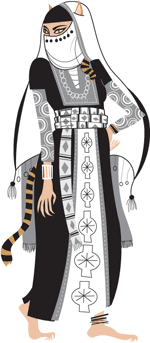 Wilson's desert fantasy moves at the breakneck speed of a thriller through cityscapes, wilderness and ethereal realms as she skillfully laces mythology and modernity, spirituality and her own unique take on technological evolution. Rather than the time-worn ghost in the machine concept, Wilson creates a djinn in the machine fusion of magic and tech that blurs the line between the mythical and virtual, suggesting a brave new world in which mankind's oldest stories will bleed through more strongly than ever.
Wilson's desert fantasy moves at the breakneck speed of a thriller through cityscapes, wilderness and ethereal realms as she skillfully laces mythology and modernity, spirituality and her own unique take on technological evolution. Rather than the time-worn ghost in the machine concept, Wilson creates a djinn in the machine fusion of magic and tech that blurs the line between the mythical and virtual, suggesting a brave new world in which mankind's oldest stories will bleed through more strongly than ever.
Like a graphic novel, Alif the Unseen relies heavily on strong characterization and witty, realistic dialogue. On the one hand, Alif epitomizes an Arab youth culture caught between the old ways and the new world. On the other, he's also a believable boy-next-door: brave but inexperienced, mystified by the opposite sex, and in love with tech toys. His interplay with pious but practical Dina sparkles as he comes to understand her true value. A pricklier love-hate relationship between ancient Vikram and the world-weary female convert offsets the youthful characters' interaction perfectly. Her protagonists are at once of disparate personalities and uniformly likable, the villain twisted and voracious in his antagonism.
While Wilson gives sly, humorous nods to geek culture--blink and you'll miss references to Star Wars and Lord of the Rings--she also boldly approaches larger issues such as religion, philosophy and the contrast between Eastern and Western culture, using fantasy as a lens through which to view reality.
Readers used to worlds based in Western mythology and populated by dragons, elves and wizards will find Wilson's Eastern urban fantasy a refreshing change with a few comfortably familiar elements. Don't miss this one-of-a-kind story, both contemporary and as ancient as the Arabian sands. --Jaclyn Fulwood



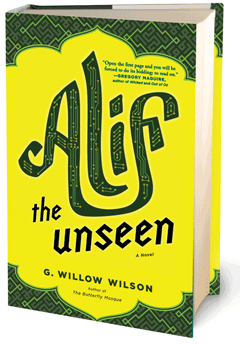
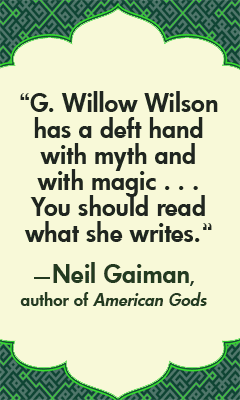
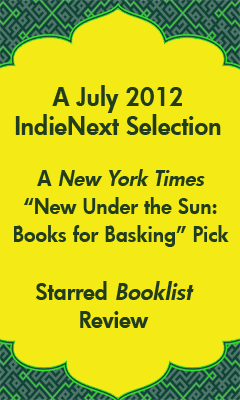
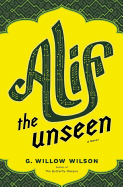

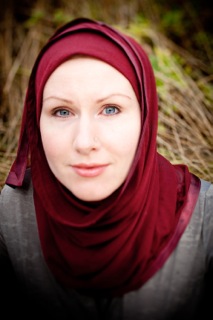 G. Willow Wilson, Eisner Award nominee for her comic series Air and winner of the Seattle Times's 2010 Best Book of the Year award for her memoir, The Butterfly Mosque, divides her time between her native America and Egypt. She recently talked with us about her writing, the fantasy genre and her debut novel, Alif the Unseen.
G. Willow Wilson, Eisner Award nominee for her comic series Air and winner of the Seattle Times's 2010 Best Book of the Year award for her memoir, The Butterfly Mosque, divides her time between her native America and Egypt. She recently talked with us about her writing, the fantasy genre and her debut novel, Alif the Unseen.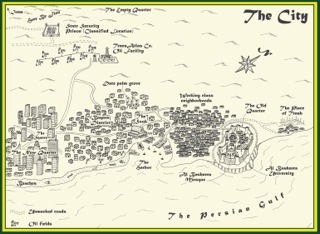 How much of the djinn and their world is true to source material, and how much is your own imaginative spin?
How much of the djinn and their world is true to source material, and how much is your own imaginative spin?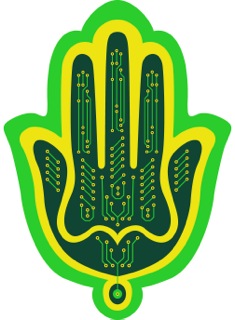 Most of the characters in Alif the Unseen are geeks, and small allusions to geek/nerd culture pop up frequently. Has geekery played a big part in your life?
Most of the characters in Alif the Unseen are geeks, and small allusions to geek/nerd culture pop up frequently. Has geekery played a big part in your life?